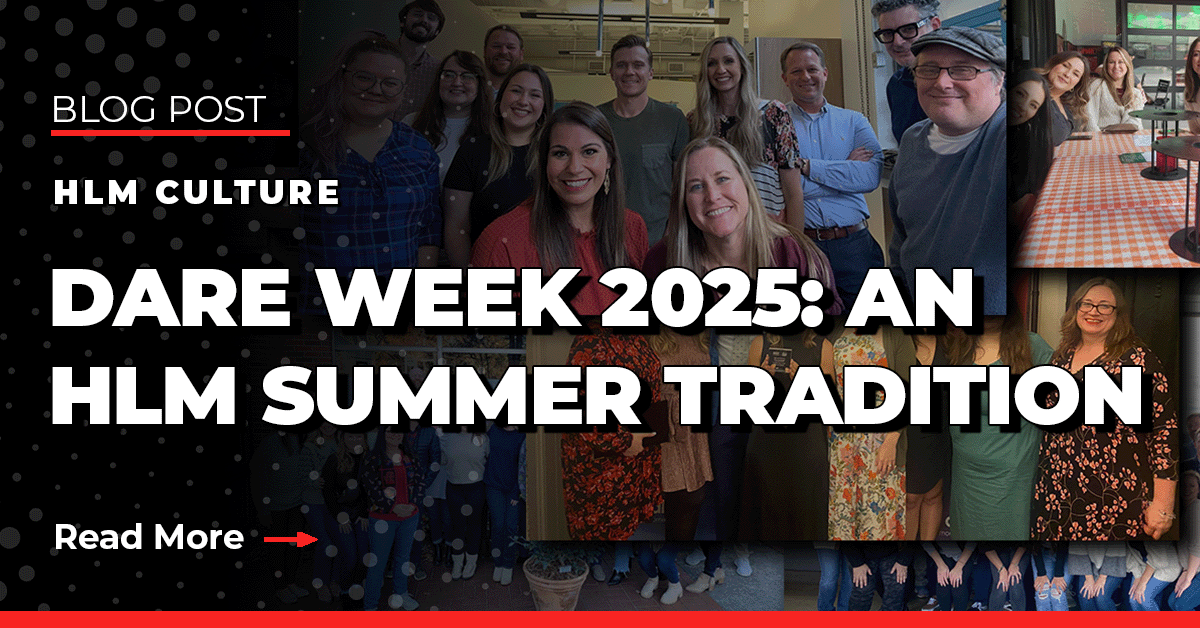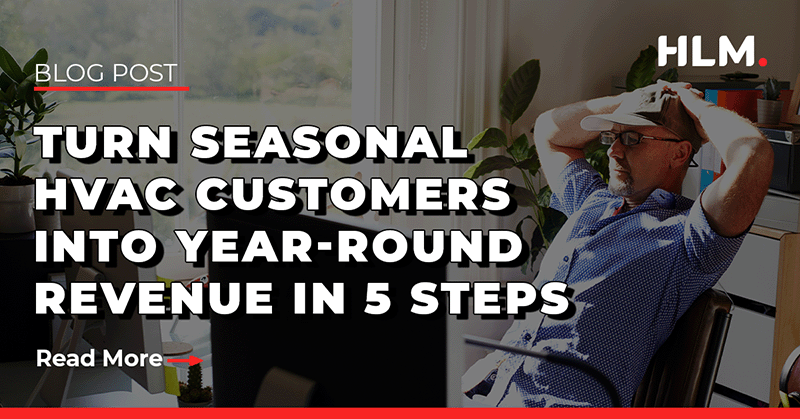![]() By Annie Wissner
Feb 22, 2023 2:50:00 PM
By Annie Wissner
Feb 22, 2023 2:50:00 PM

Pay-Per-Click (PPC) advertising can boost website traffic, generate qualified leads quickly, and increase revenue. However, achieving successful PPC campaigns is no easy feat and requires much planning, expertise, and, most importantly, time - a valuable commodity in today's fast-paced business environment. But, with a solid digital foundation and strategy, paid ad campaigns DO work.
High Level Marketing's experienced, Google Certified paid strategists constantly monitor each client’s PPC campaign strategy and performance to increase clicks, reduce conversion costs, and generate the best ROI possible.
Establishing a successful PPC campaign strategy involves much more than simply creating Google ads. Numerous potential pitfalls can lead to campaign failure. In this blog, we'll share the three most common reasons why PPC campaigns fail, along with practical tips on how to avoid them and run a successful campaign.
While several factors may cause a campaign to miss the mark, we've found that these three pitfalls are particularly prevalent and can be avoided with the right approach.
1. Lack of a Clear Campaign Strategy and Structure
One of the most common reasons small and medium-sized businesses fail with PPC is due to the lack of a clear campaign strategy and structure. Successful PPC advertising requires a well-thought-out plan, from identifying your target audience to selecting the right keywords and creating compelling ad copy. Without a clear strategy in place, businesses can waste a lot of time and money on ineffective campaigns.
You can avoid wasting money on ineffective paid campaigns by developing a solid strategy before launching your PPC campaign. Here are two tips for setting your campaign up for success:
Tip 1: Set clear goals and objectives.
First, start by setting clear goals and objectives for your campaign, such as increasing website traffic or generating leads. Then, identify your target audience and research the keywords they're searching for. Use this information to create a targeted campaign with ad copy that addresses your audience's pain points.
Tip 2: Divide your ad groups by product or service.
Second, ensure you have a well-structured campaign by dividing your ad groups by product or service and using specific, relevant keywords for each ad group. This will help you create ad copy that is more tailored to each group's search query and increase the position and relevance of your ads.
We've encountered numerous poorly structured AdWords campaigns that don't adhere to basic best practices. Here are two of the most common mistakes we see:
Mistake 1: Running the same campaign on different platforms.
One of the most common mistakes we see is running a single campaign that targets both the display networks and search. Display networks and search are vastly different platforms and should never be lumped together in a single campaign. Doing so results in poor performance, minimal results, and a waste of money.
Mistake 2: Too many keywords for a single ad.
Another issue we frequently find is campaigns with just one ad group with too many keywords for a single ad. This problem leads to less relevant ads and reduces the chances of converting clicks to sales. In addition, using too many keywords in a single ad group makes monitoring and optimizing the campaign for better performance harder.
Google Ads (formerly Google Adwords) are all about relevance. Choosing multiple ad groups when setting up your campaign will make your ad more targeted with better messaging. This approach results in ads that are more relevant to the user's search query, increasing the chances of a click-through and conversion.
2. Weak Landing Pages, or Worse - No Landing Page At All
Landing pages are one of the most critical elements of any PPC ad campaign. Yet, a surprising number of businesses create unclear, unattractive landing pages or simply use a generic page on their website. The first page a searcher lands on after clicking on your Google ad is called a landing page or “squeeze page.” This page is a key component in your AdWords campaign because its only job is to convert. It’s typically very streamlined, focused on the topic, and has clear CTAs.
Your Ad copy can drive the right traffic, but it needs a well-designed, high-converting landing page to grab the user’s attention and drive the conversion.
A bad landing page can hurt your campaign in a few ways. First, Google wants to deliver the best experience possible to its users. A bad landing page means Google will be less likely to show your ads. Second, a bad landing page negatively affects your page's "quality score." In addition to a low-ranking campaign, you'll likely pay a premium price per click or conversion.
Several mistakes can lead to disappointing landing page performance and ultimately kill a PPC campaign. Here are a few of the most common ones we see:
Poorly designed page that is hard to read and navigate.
A messy and unstructured page with irrelevant images or messages can easily confuse website visitors and lead to high bounce rates.
Not enough information.
A landing page should provide enough details about the advertised product or service. Without this, users cannot make an informed decision, leading to high bounce rates.
No clear call to action.
Even if the copy is well-written and the design is attractive, users may not take the desired action if there’s no obvious call to action.
Lack of trust elements.
People will not purchase from a website without proof that the brand is trustworthy. Adding customer reviews, security logos, and other trust elements can help increase conversions.
Slow-loading pages.
Online users are very impatient; they will simply leave if a page takes too long to load. Optimizing the page for speed is essential for improving the performance of a PPC campaign.
3. No Conversion Tracking
Understanding your customer’s intent and the ad's performance, and calculating the campaign ROI is crucial to growing your business with paid campaigns. Conversion tracking tells you where your leads came from and what actions those potential customers took to connect with your business. This data helps you identify improvement areas, such as adjusting your ad or landing page to increase conversions.
Landing page conversions are typically measured by lead form fills and phone calls. Although phone call leads can sometimes be higher quality, "hot leads," it's equally important to track, measure, and quickly follow up on both.
Tracking and tying conversions to specific ads using UTMs and call tracking allows you to gain valuable insight into which campaigns drive the best results. Without proper conversion tracking, you won't know how to optimize your campaigns or calculate your return on ad investment. You may spend a lot of money on bad clicks or miss out on the data showing which ads and keywords attract your ideal customers.
As you can see, several factors can contribute to the failure of a PPC campaign. With these in mind, it's important that you take the time to plan and structure your campaign for success. Setting a specific objective for the campaign, dividing the ads based on the product or service and keyword selection, and creating strong ad copy that is tailored to your target audience are all essential.
For the best results, link your campaign to a stellar landing page that's easy to navigate, has a compelling offer, and provides all the necessary information to purchase. Do both, and you are on your way to running a successful PPC campaign.
If you’re struggling with managing your PPC efforts, we can help get you back on track with a customized paid ad strategy for your business that drives traffic and generates sales.
Author: Annie Wissner
Contact Us NowRecent Posts
When you're done with this post, check out our other content below for more Digital Marketing expertise
Contact Us Today
Complete the form below and receive a call within minutes.
Need faster results? Call us now at (888) 717-4249





